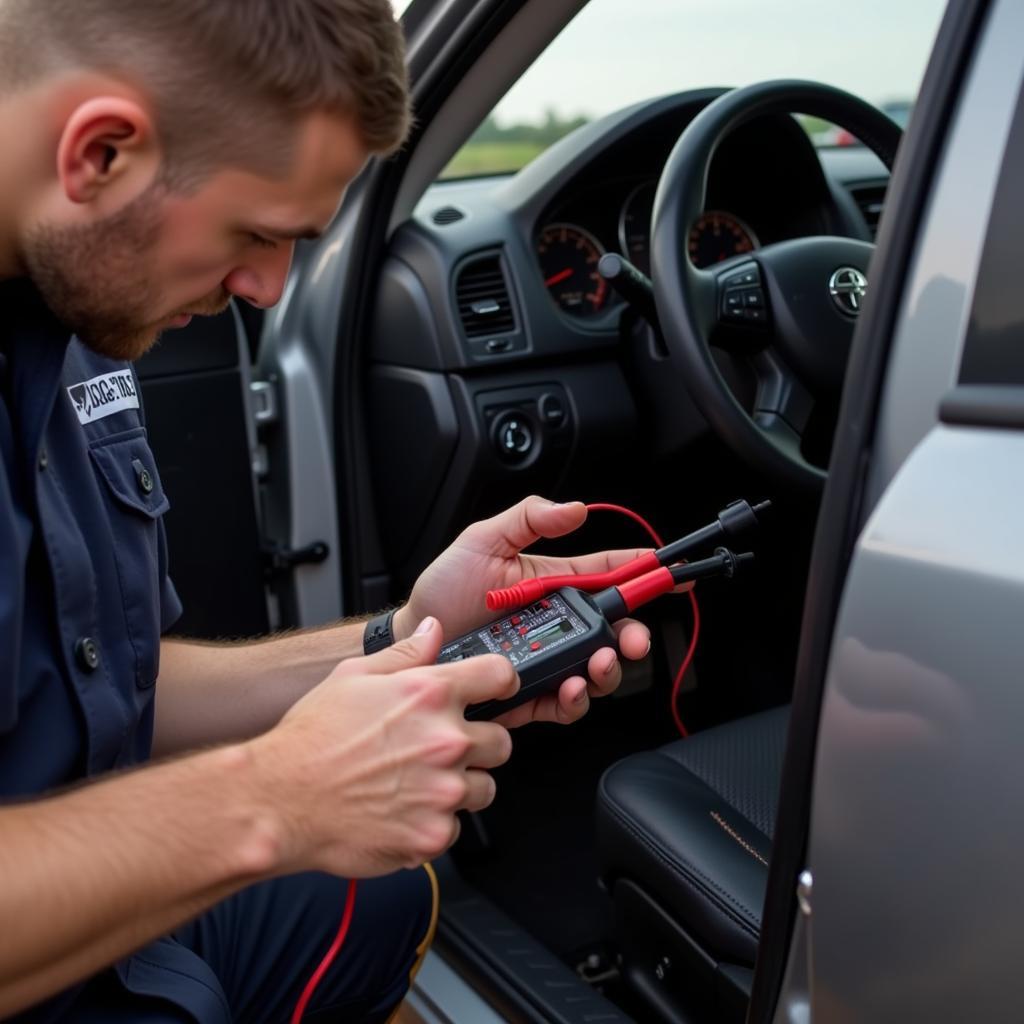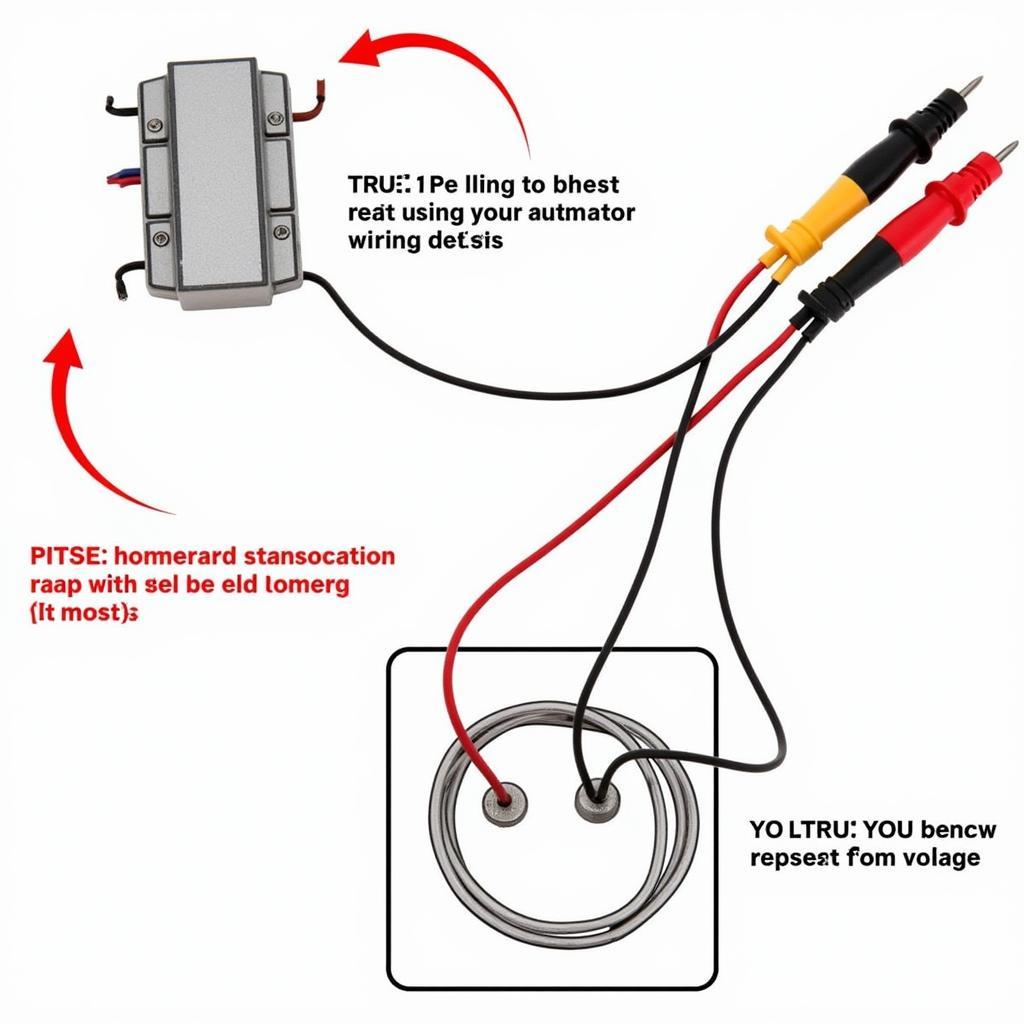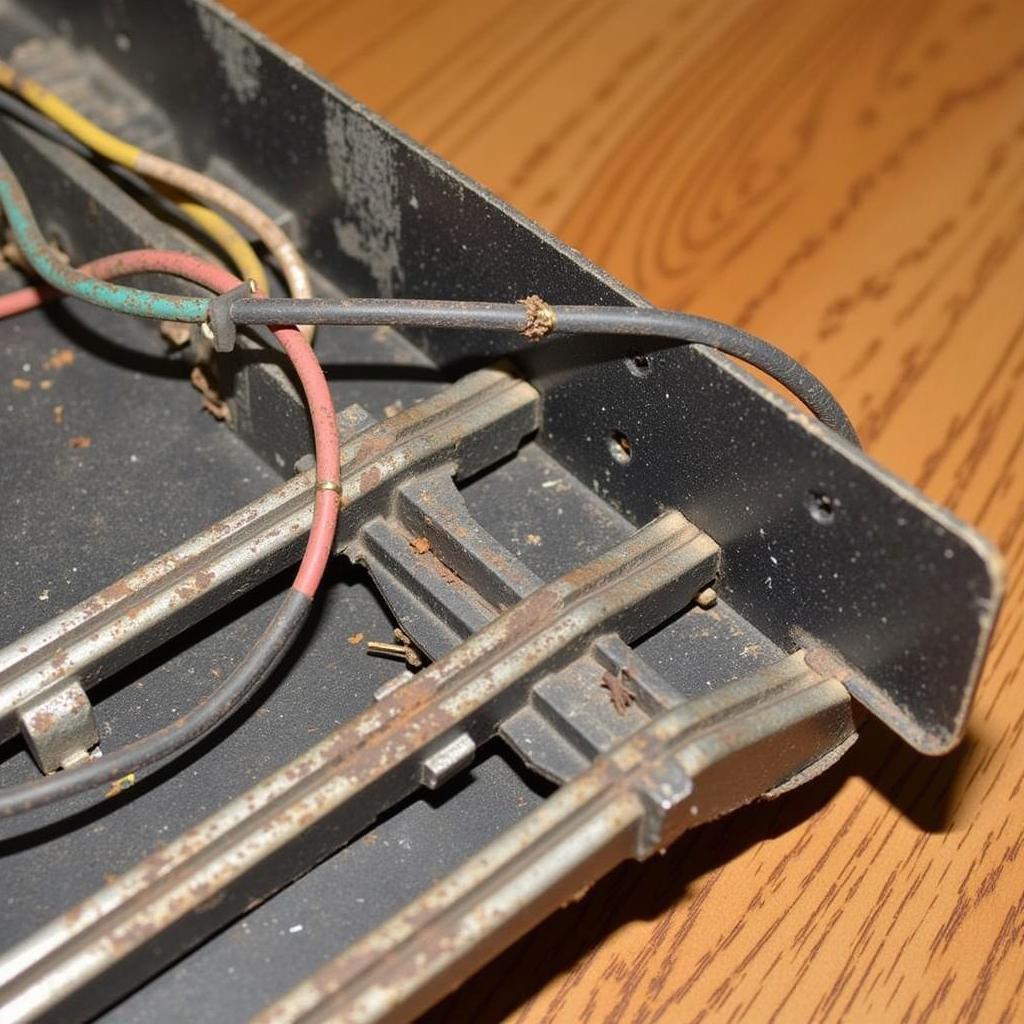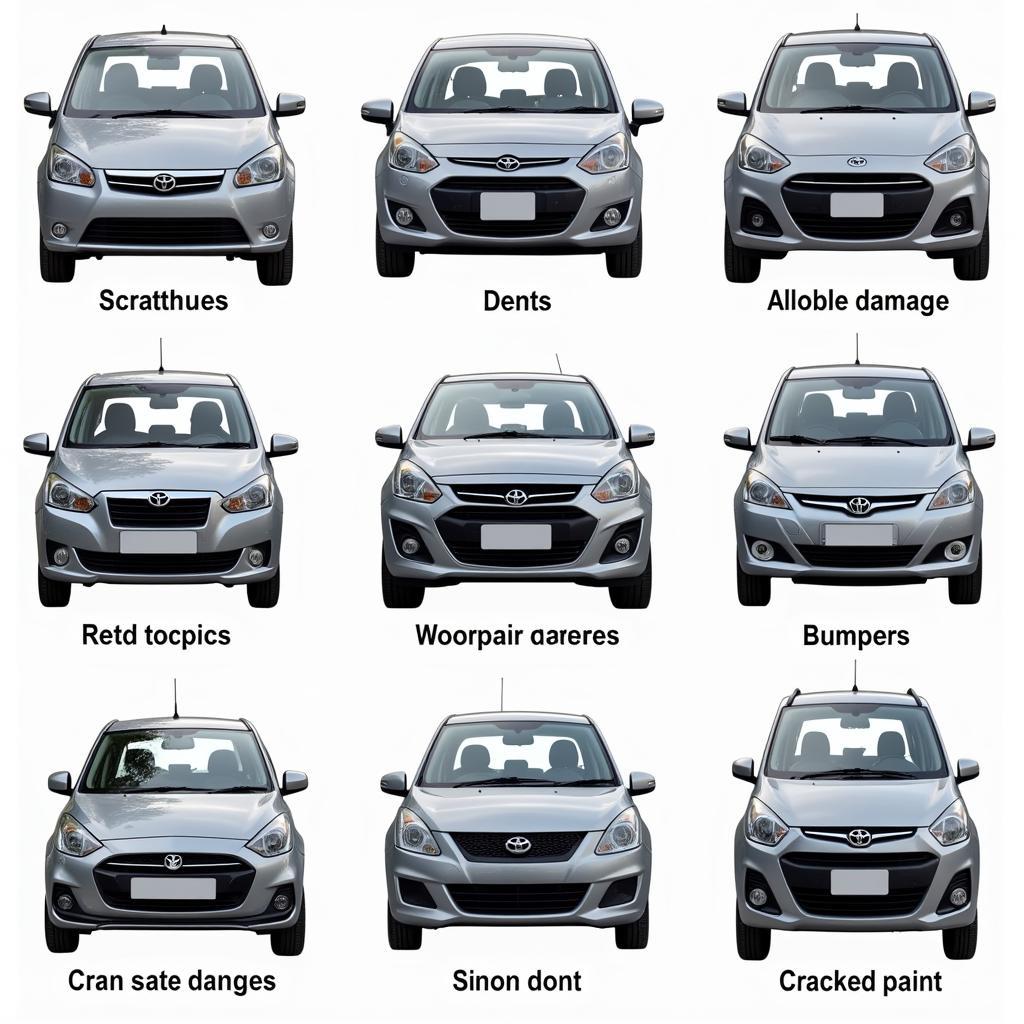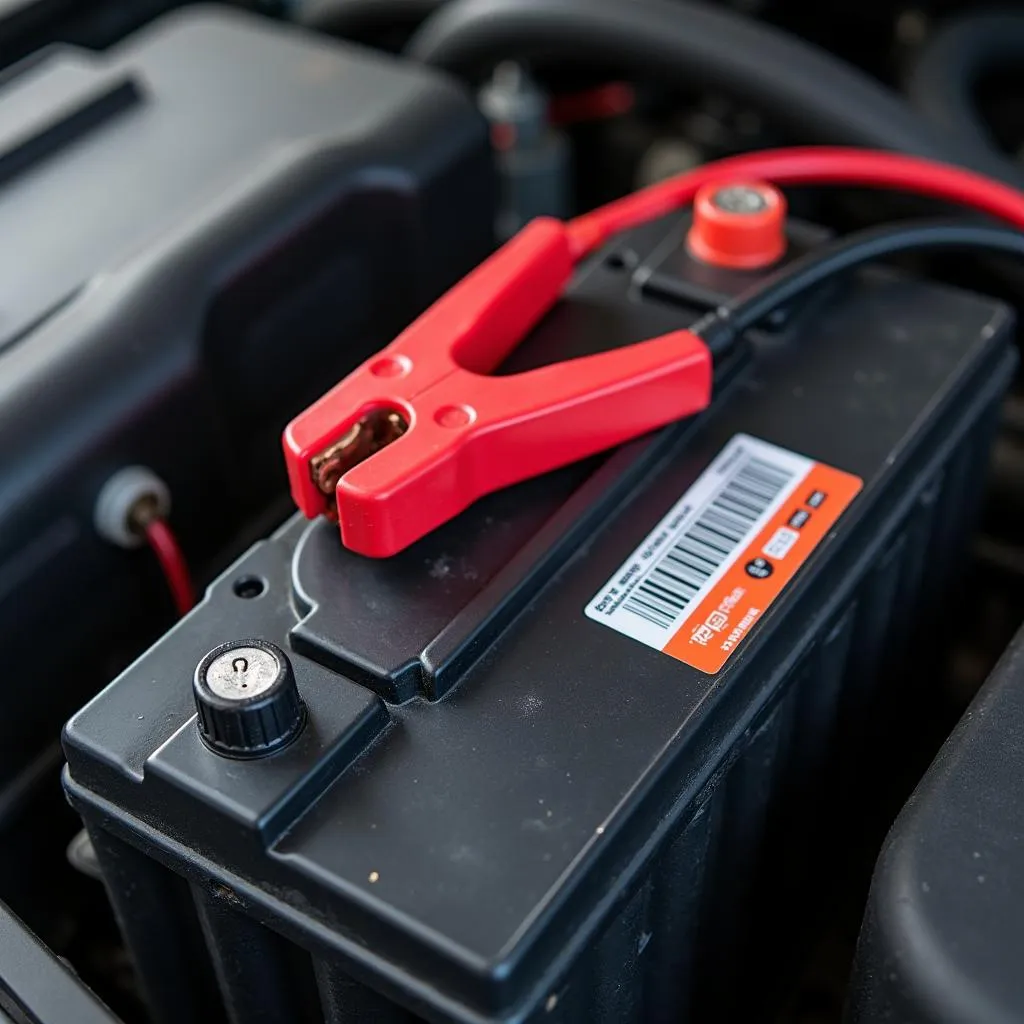
Car Battery and Jump Starter Cables
Understanding the intricacies of your car’s electrical system can seem daunting, but many common issues fall under the category of “minor electrical repairs.” These repairs, while seemingly small, can have a big impact on your vehicle’s performance and your overall driving experience. This guide will delve into the world of Car Minor Electrical Repairs, equipping you with the knowledge to identify, understand, and potentially address these issues.
What Qualifies as a Minor Electrical Repair?
Before we dive into specifics, let’s define what constitutes a minor car electrical repair. These repairs typically involve components and systems that don’t require extensive disassembly of your car’s electrical system.
 Car Battery and Jump Starter Cables
Car Battery and Jump Starter Cables
Examples of minor electrical repairs include:
- Battery issues: Jump-starting a dead battery, cleaning corroded terminals, or replacing the battery itself.
- Lighting problems: Replacing blown fuses, burnt-out bulbs (headlights, taillights, interior lights), or faulty switches.
- Malfunctioning accessories: Diagnosing and fixing issues with power windows, locks, radio, windshield wipers, and other electrical accessories.
Common Causes of Minor Electrical Problems
Several factors can contribute to minor electrical issues in your car. Recognizing these culprits can help you prevent future problems:
- Loose or corroded connections: Over time, battery terminals and wiring connections can become loose or corroded, disrupting the flow of electricity.
- Blown fuses: A sudden surge of electricity, often caused by a short circuit, can blow a fuse, interrupting power to specific components.
- Burnt-out bulbs: Like any light bulb, car bulbs have a limited lifespan and will eventually burn out, requiring replacement.
- Faulty relays: Relays are electromechanical switches that control various electrical circuits. A faulty relay can lead to malfunctions in the corresponding system.
- Worn-out switches: Frequently used switches, like power window or lock switches, can wear out over time, causing intermittent or complete failure.
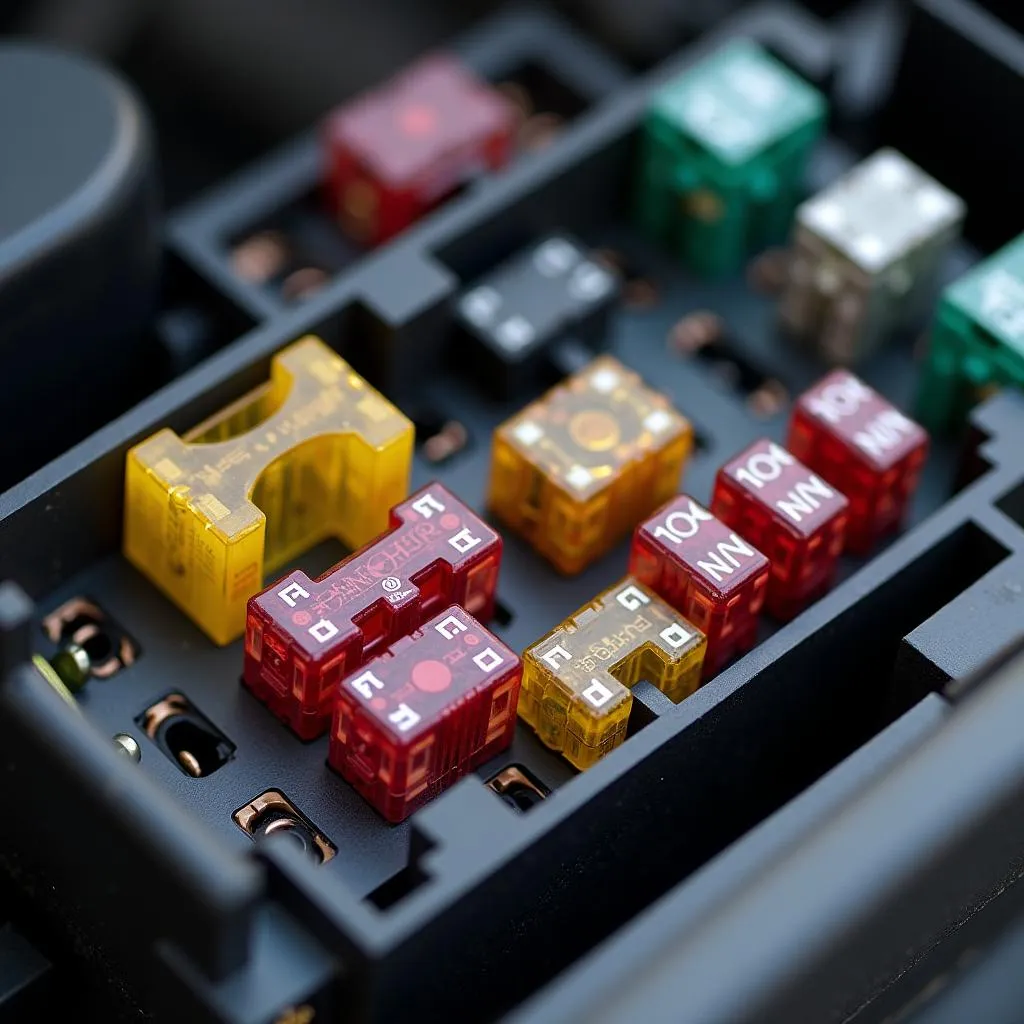 Car Fuse Box with Various Fuses
Car Fuse Box with Various Fuses
Diagnosing Minor Electrical Issues
While some minor electrical problems are easy to spot, others may require a bit of investigative work. Here are some steps you can take to diagnose the issue:
- Check the battery: A weak or dead battery is often the culprit behind starting problems and dim lights. Inspect the battery terminals for corrosion and use a multimeter to check the battery voltage.
- Inspect the fuses: Refer to your car’s owner’s manual to locate the fuse box and identify the fuse associated with the malfunctioning component. A blown fuse will have a broken wire inside.
- Test the bulbs and switches: If a light isn’t working, check the bulb first. If the bulb is fine, the switch might be faulty and need replacement.
- Listen for unusual sounds: Clicking noises from relays or buzzing from motors can indicate a problem with the corresponding component.
When to Seek Professional Help
While this guide provides a starting point for understanding and addressing minor electrical repairs, it’s essential to recognize your limits. If you’re uncomfortable working with electrical components or the issue seems beyond your expertise, it’s best to seek help from a qualified mechanic.
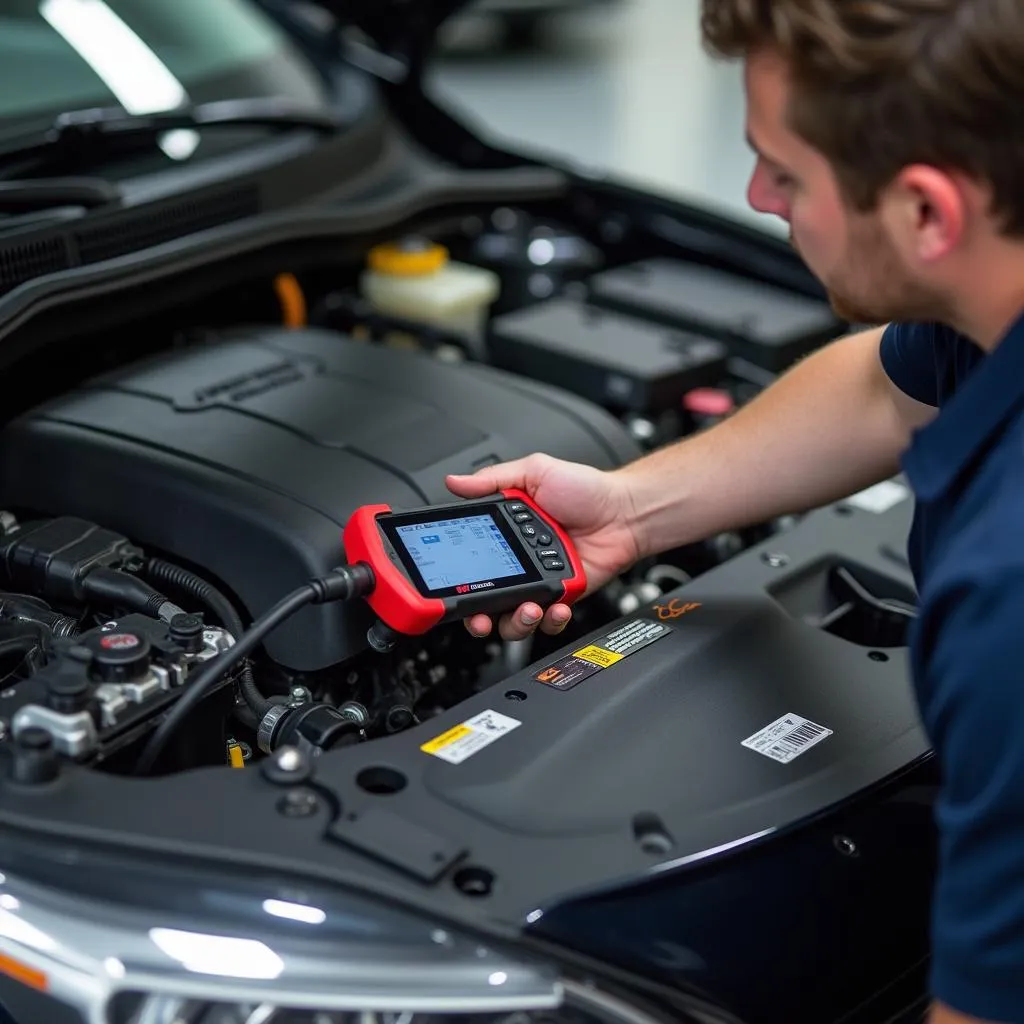 Car Mechanic Diagnosing Electrical Issue
Car Mechanic Diagnosing Electrical Issue
Attempting to fix complex electrical problems without proper knowledge and tools can potentially worsen the issue or even pose safety hazards.
Conclusion
Understanding car minor electrical repairs empowers you to address simple issues and better communicate with mechanics for more complex problems. Remember, regular maintenance, such as cleaning battery terminals and checking fuses, can prevent many minor electrical issues from occurring in the first place. If you encounter persistent problems or suspect a more significant electrical fault, don’t hesitate to seek professional assistance from a trusted mechanic.
FAQs
Q: How often should I check my car battery?
A: It’s a good practice to inspect your car battery at least twice a year, especially during extreme weather conditions.
Q: Can I replace a car fuse myself?
A: Yes, replacing a blown car fuse is a simple task that most car owners can handle. Refer to your car’s owner’s manual for the location of the fuse box and the correct fuse type.
Q: Why are my car’s headlights dim?
A: Dim headlights can indicate a weak battery, a failing alternator, or a problem with the headlight wiring or bulbs.
Q: How long do car batteries typically last?
A: Car batteries generally last between 3 to 5 years, depending on factors like climate and usage.
Q: What should I do if my car’s electrical system seems to be malfunctioning erratically?
A: Intermittent electrical problems can be challenging to diagnose. It’s best to consult a qualified mechanic who can use specialized equipment to pinpoint the source of the problem.
Need More Help?
Do you have other questions or need assistance with car electrical repairs? Our team of expert mechanics at car electrical repairs newtownards is here to help. Contact us via WhatsApp at +1(641)206-8880 or email us at [email protected] for 24/7 support. We offer a wide range of car repair services to keep your vehicle running smoothly.

